On March 18, 2018, the Archdiocese of Los Angeles, during their annual Religious Education Congress, offered the following workshop: “Teaching Mercy: Accompanying LGBT Students.” The workshop focused on helping “educators discern a merciful balance between teaching doctrine and offering pastoral care as they accompany LGBT students through journeys of self-discovery and self-acceptance.” The presenters were Fr. Chris Ponnet (pictured above), Arthur Fitzmaurice and Ish Ruiz. Ponnet was ordained in 1983 and serves as “Spiritual Director” for the Archdiocese’s Catholic Ministry with Lesbian and Gay Persons (CMLGP). Following the 2016 Congress, after a same-sex couple and their son presented the gifts to Archbishop Gomez at the “Margins” Mass, the CMLGP released the following statement:
Progress for LGBT Catholics is slow and happens in incremental pieces, and often includes setbacks. I saw much progress this past weekend at the Religious Education Congress in Anaheim. Our ministry was honored to participate in the Church on the Margins liturgy…Four sold out LGBT-affirming sessions were presented including first time session in Spanish and one with a transgender topic. But if there was one indelible moment, it may have come at the closing liturgy on Sunday when a gay couple and their son helped present gifts at the altar to Archbishop Jose Gomez.
Arthur Fitzmaurice is openly gay and currently (since 2010) serves as Resource Director for the dissident Catholic Association of Lesbian and Gay Ministries (CALGM.) Concerning the Catechism and the statement that homosexual acts are “intrinsically disordered,” Fitzmaurice wrote: “The language certainly still needs to change. It is gravely evil language.” In 2012, board members of CALGM, including Fitzmaurice, refused to sign an “oath of personal integrity” to Catholic teaching. In 2016, Fitzmaurice signed an on-line petition created by “Call To Action” which asks for changes in The Catechism regarding teachings on homosexuality.
Ish Ruiz is Religious Studies Instructor at Sacred Heart Cathedral Preparatory in San Francisco. According to his profile at the dissident pro-gay and pro-women’s ordination group “Call To Action:”
Ish Ruiz is a doctoral student in the Graduate Theological Union in Berkeley and a Religious Studies instructor at a Catholic high school in San Francisco. Ruiz has offered workshops to high school faculty and staff on the care for LGBTQ+ students in Catholic schools and is a member of the Marianist LGBT Initiative Team, which published a resource, titled Addressing LGBT Issues with Youth: A Resource for Educators. He is also a leading member of the Young Adults group at Most Holy Redeemer parish in the Castro neighborhood of San Francisco, which is known for its integration of LGBTQ+ Catholics into the life of the Church. Ruiz has made several contributions in the media and through his ministries regarding the protection of LGBTQ+ Church workers, the Catholic Church’s response to the Supreme Court’s ruling on marriage equality, and the contributions of LGBTQ+ teachers in Catholic schools.
In 2006, the Prefect for the Congregation for Bishops, Giovanni Battista Cardinal Re, wrote to then Bishop Fabian Bruskewitz concerning Call To Action, stating: “…to be a member of this association or to support it is irreconcilable with a coherent living of the Catholic faith.”
Regarding the Supreme Court’s decision to legalize gay marriage, Ruiz said:
The Church has always taught that the Holy Spirit speaks through the laity as well as the hierarchy. I hope the decision from the Supreme court, combined with polls that show that the majority of Catholics support same-sex marriage, encourages the hierarchy to be more in touch with the people, the sense of the faithful.
The workshop presenters were introduced by Jenny Naughton who boldly proclaimed: “I am the proud Catholic mother of a gay son.” Naughton is a master catechist for the Archdiocese of Los Angeles and founded the gay-affirmative support group “Always Our Children” in 2007. She is currently an “Associate Board Member” for the pro-gay marriage dissident Catholic organization “Fortunate Families.” After the Obergefell v. Hodges decision, Deb Word, then President of Fortunate Families, released the following statement:
Fortunate Families celebrates with our LGBT children the opportunity to share in the same rights as their straight siblings. The Supreme Court decision brings legal stability to our children’s lives and security to our grandchildren. We applaud this decision and continue our work in the Catholic tradition seeking social justice for all our children…
Arthur Fitzmaurice served a moderator and began by stating: “I am going to talk more about Church teachings and whether the Church’s teaching apply in the Catholic school environment.”
The first presenter was Chris Ponnet. He asked the audience to discuss among themselves, their image of God.
He then said:
We know today in our political climate, an image of God can create a Tweet and an announcement that sends the rest of us into corners that are scary and fearful because we are immigrants, we are working with people who are dreamers, we are working with people who are gay, lesbian, transgender, bisexual, questioning, affirming, we are accompanying people, but one political agenda says that we are all condemned and all outsiders. And the wall is there to keep us out.
He continued:
Today we gather with a specific focus to say, with out high school students especially: How do we take our image of God and make it practical, affirming and welcoming and inviting?
Ponnet then stated:
Part of our question as we walk this journey is: Do we understand what this is about – sexual identity? The way in which a person sees themselves and in terms of who they are romantically and sexually attracted to. Now some people don’t even have that when they are 50 years old. We know that some people as Second and Third graders have that, and they begin to identify with either what is normative, or from their perspective, what is normative, and they dress different from what you expect, they speak differently and they identify themselves in a world that is unto themselves. And we are called to journey with them and affirm them in that journey.
Next, Ponnet spoke about the activities of CMLGP: “Some of our people are going to parishes specifically or schools to create an honest dialogue.” He added: “Our Bishop Gomez is the director of our ministry.”
He recommended that schools adopt: “a clear public policy that says this place affirms teachers, affirms students that identify, and we want to find a place to accompany them.”
He also discussed his experiences at Catholic schools:
I assume when I walk into a Catholic mass at a Catholic school, that 40% if not more are non-Catholics. Is that true for you? Maybe 50% in some places. So, I try to figure out how to say a Catholic mass without the word Jesus. It’s an interesting approach. Most of my Catholic friends begin to wonder whether I’m Catholic.
Ponnet also spoke about how to “accompany” teens who may identify as LGBT:
If a young person comes up and says – I’m heterosexual, I’m attracted, and am gonna go on a date, and we might have sex, how do I accept that heterosexual person? A person comes in and says – I’m transgender and I’m in this process, will you accompany me? How can I accept that truth? That person’s truth.
He continued:
We’re all God’s children and human sexuality is not something evil that some religions believe is just added onto this pile of human poop, to quote a famous tradition in the middle centuries, we are created in the image and likeness, and human sexuality’s gift is part of that beautifulness.
Ponnet said, we must continue: “the tradition of affirming self-identity.”
Ponnet then suggests that teachers create some other means by which LGBT students can be “affirmed” in their sexual orientation, even if a local prelate or the school principal refuses to allow “gay” clubs or social groups:
The whole question of straight-gay alliances, and the whole political piece of that, that scares bishops and pastors and principals and how to figure out another way to create groups or support places or networking places and then how do we offer specifically to the Catholic and Christian young person who hears maybe on Sunday a different message that is not so affirming.
Lastly, Ponnet placed on the overhead screen a poem taken from the book “Creating Safe Environments for LGBT Students: A Catholic Schools Perspective” by Michael J. Bayly. An openly gay man, in his book Bayly wrote:
To assume that God created homosexuals to “abstain from all sexual acts” because such acts are “closed to the gift of life” is unrealistic and unfair. This theological doctrine polarizes homosexual Catholics into a paradox: although the Church to which they belong says it’s okay to be gay because that’s the way God created them, this same Church places an extremely negative connotation on the way homosexuals express their love for one another. I believe that God created all of us, heterosexuals and homosexuals alike, to be sexual creatures.
Ponnet said: “I want to invite you to hear…from a book by Michael Bayly – “Creating Safe Environments for LGBT Students.” Then, Ponnet proceeded to read the poem “Does it Matter? – which includes the following:
…My God asked me Do you love yourself?
I said Does it Matter?
He said Yes.
I said How can I love myself? I am gay
He said That is the way I made you
Nothing again will ever matter
After Chris Ponnet spoke, Ish Ruiz focused his presentation on conscience. He said:
This is really a prophetic movement within our Church and there is not really like a rulebook or a rubric. Church teaching on sexuality is clearly defined, although there are a lot of disputes at to exactly…let me rephrase that…Church teaching on homosexuality is stated, though often questions about the definition are raised, so we have to be very careful, we have a Church on one extreme that says – gay people…need repentance and need to find the Lord and then some people on the other extreme that say – I’m Catholic, I’m gay, I have a partner who is of the same-sex and I find grace and God through my relationship and that whole spectrum is part of this beautiful Catholic Church that we call universal.
Concerning how to instruct students about Church teachings on homosexuality, Ruiz said:
We can teach Church teaching and explain the context in which Church teaching is being dialoged about…The goal of teaching, and Church teaching, on morality, in my opinion, is to help the students form their own conscience…some people are like – Oh, that’s creating cafeteria-Catholics, their gonna come and pick and choose what teachings they want to follow. Great! That means they are following their consciences about each of the items in the cafeteria…
Ruiz finished his presentation with a quote “that I really like from Amoris Laetitia.” He read the following passage:
We also find it hard to make room for the consciences of the faithful, who very often respond as best they can to the Gospel amid their limitations, and are capable of carrying out their own discernment in complex situations. We have been called to form consciences, not to replace them.
In his presentation, Arthur Fitzmaurice claimed that:
The Church does teach that the homosexual orientation is not a choice, its experienced as a given.
Here, he only references one source to substantiate his claim – the 1997 USCCB statement “Always Our Children.” At the time, regarding this statement, Bishop Fabian Bruskewitz wrote:
Although this document was evidently “approved” by the Administrative Committee of that conference, and it would seem the correct procedures outlined in conference rules were followed, it should be made clear that the document was composed without any input from the majority of the American Catholic bishops, who were given no opportunity whatever to comment on its pastoral usefulness or on its contents.
Bishop Bruskewitz added:
“Calamity and frightening disaster” are terms which are not too excessive to describe this document. It is my view that this document carries no weight or authority for Catholics, whom I would advise to ignore or oppose it.
When addressing the possibility of same-sex couples who might want to attend a Catholic prom or homecoming, Fitzmaurice offered the following advice:
So, what if two men or women want to go to prom or homecoming together. So, what do you do? What is the purpose of prom or homecoming? Is your goal so that every heterosexual who comes to the prom or homecoming will find somebody of the opposite gender and will go sleep with them that evening. Its not. So, don’t assume that’s the goal of a prom if two men go together. A lot of heterosexual people go as friends. Right. So, if they’re allowed to be friends, why am I not allowed to be friends…so maybe there’s a conversation to be had, but not an automatic no.
In conclusion, Fitzmaurice said:
Pope Francis said if someone is gay and seeks the Lord with good will – who am I to judge? This could become your mantra. So, if your gonna judge, if your gonna recite Catechetical documents only to the gay and lesbian people in your class, they’re gonna feel anxiety, they might attempt suicide. Chances are they’re gonna go to college, they’re not gonna go to Church. They’re gonna leave the Church.
When the speakers were asked by someone in the audience about the term “intrinsically disordered,” which they did not refer to during any of their presentations, Ish Ruiz said:
I tend to not use the word disordered simply because it will cause more harm that I think it will do good…I don’t use the word disordered, I do teach what the Church does teach and again, I teach that, within the context of a wider dialogue that is taking place in our conversation where even Cardinals are wondering if same-sex relationships bear gifts to the couple and maybe they are a sign of grace.
Ponnet added:
If we have any priests here, during Lent one of the prefaces at mass, includes the words that we are all disordered…the term can be looked at in the context of original sin, and instead of being interpreted as a specific judgment…
Please contact:
Archdiocese of Los Angeles
3424 Wilshire Blvd.
Los Angeles, CA 90010-2241
phone: (213) 637-7000
email: info@la-archdiocese.org
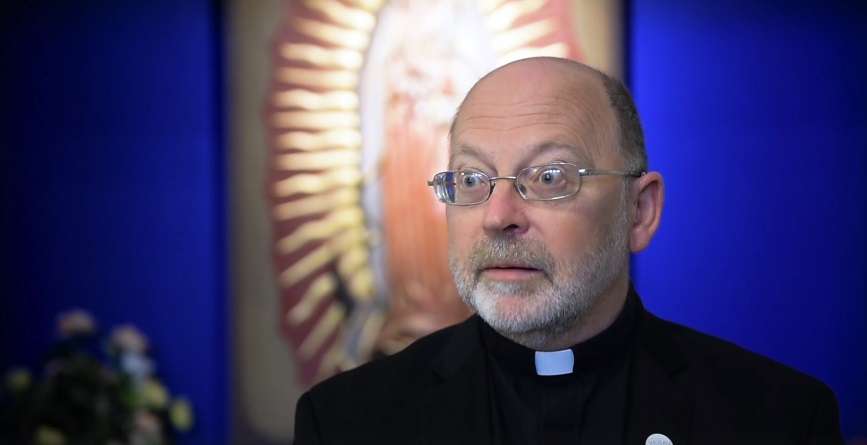

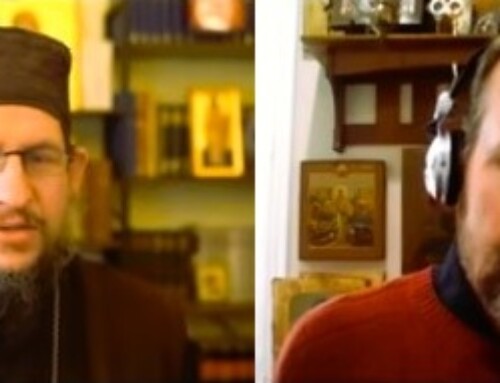
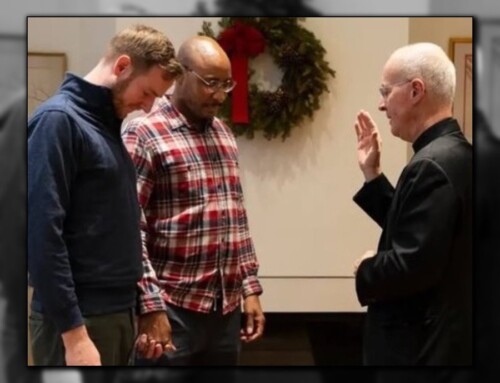
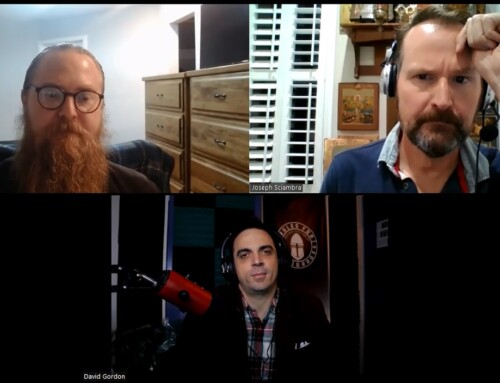
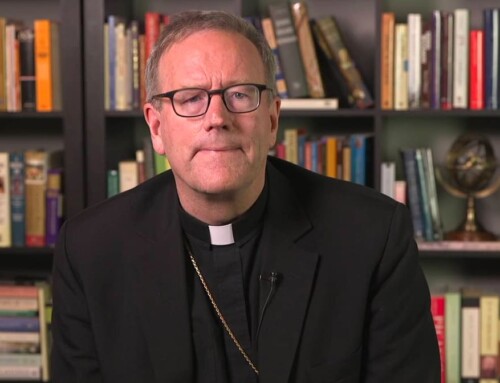
I don’t even have words for this evil, Joseph. I just keep thinking about all the souls these priests will be accountable for leading astray and it’s terrifying. May our Lord Jesus have mercy on them and use whatever means are necessary to bring them to conversion.
Keep up the good work, Joseph. I’m going to say a prayer for you and your work. Your reviews of these RECongress talks are important. They reveal to those of us who were not there just how corrupt some parts of the Archdiocese really are. Its hard to believe what you have reported could ever be said at an official educational and catechetical archdiocesan event, and some of it by priests. Its so sad. I for one will never give any more $ to the archdiocese or Together in Mission until these sad events are officially corrected or repudiated.